
Posted on 12/31/2011 10:41:00 PM PST by CougarGA7
"Today begins the last great decisive battle of the year. In it we will destroy the enemy and, in so doing, England, the instigator of this whole war... We are thus lifting from Germany and Europe the danger that has hovered over the continent ever since the times of the Huns and later the Mongol invasion" – Adolf Hitler, 2 October 19411
Often when someone thinks of 1941, they almost immediately think of the attack on Pearl Harbor and America’s entrance into the Second World War. The day that would live in “infamy” would prove to make a lasting impression on history. Yet, the attack on Pearl Harbor represents only a small and very late piece of the year that was 1941. Its tardy but large impact is reminiscent of the 1939 December introduction of Gone with the Wind which took the fan fare from the other blockbusters of that year like The Wizard of Oz and Mr. Smith Goes to Washington. Like all of these movies, the events of 1941 were both profound and lasting. For 1941 was the hidden turning point of World War II. It couldn’t be seen at the time, but the series of events that unfolded that year set the stage both politically and historically for the rest of the war. For the Axis powers, it was a year of great conquest, but at the same time it was the year of the critical mistakes that would mark the inevitability of their demise. For the Allies, it was the year that forged the bonds that would create an uneasy, but effective alliance against the Axis powers that would be irresistible.
To Germany, 1941 was the year of even greater conquest than that of 1940. With the fall of France and the perceived isolation of the United Kingdom, Hitler was free to shift his focus back to the east and the hated Bolsheviks. But first he would have to deal with the pot that had been stirred by his southern ally, Italy the year before. Mussolini had initially intended to make short work of Greece when he invaded it in 1940, but inferior Italian troops combined with superior Greek use of artillery had ground the battle in the Balkans to a standstill. This problem was multiplied when on March 27th, a British backed coup in neighboring Yugoslavia shook up the nice list of Balkan alliances that were designed to shore up his southern flank in eastern Europe.2 In dealing with Yugoslavia and Greece, the Nazis only amplified the perception of invincibility. Once again, the opposing countries fell in very short order leaving the Soviet Union ripe to become the next apple to be picked from the European tree.
Operation BARBAROSSA, the Nazi invasion of the Soviet Union, was to be the crowning achievement in Hitler’s series of conquests. Hitler believed that if he could quickly dispatch the Soviets as he had all the other foes he came up against with his mighty Wehrmacht that even Britain, protected from the Germany armies by the English Channel and the R.A.F., would see the hopelessness of their situation and sue for peace.3 Initially, this would seem to have been the likely outcome. On the surface it appeared that once again, the Nazi juggernaut was going to roll up another victim. So assured were onlookers that the U.S.S.R. was about to become Hitler’s next conquest that even Churchill lamented, “I am afraid Moscow is a gone coon.”4
Unknown to outsiders at the time, Hitler had finally bitten off more than he could chew. The logistics of invading a country as large as the Soviet Union had escaped the former corporal and while it is true that large numbers of Soviet troops were captured and killed, even larger numbers were able to escape German encirclements slipping through the gaps that were left by the marching infantry’s inability to keep up with the advancing panzer groups.5 These rear troops were almost immediately in danger as a rapidly developing partisan movement made up of conquered citizens and cut off Soviet troops began wreaking havoc behind the German lines. One infantry lieutenant characterized the situation in a letter he wrote from the front:
"We cannot move forward, everywhere there are small battles. Above all at night...Very close to me four officers have fallen. They will soon be buried together with other comrades in the town [Ozgmowicz]. Under no circumstances can this continue!!" - Lieutenant Georg Kreuter, 4th Army6
This fatal misstep by Hitler would become the beginning of the end for the 1000 year Reich, and the Nazi Party. On the other side of the world, another Axis partner was also making its moves which would lead it to both its ultimate apex of power as well and its eventual doom. Japan had been attempting to exert its will in Asia ever since the Meiji Restoration of 1868 and began to annex neighboring islands like the Kuriles in 1875, and Okinawa in 1879; this would ultimately lead to its first conflict with China in 1894 as Japan wrestled Korea from China patronage to make the peninsula, Japan’s own vassal state.7 As 1941 opened, Japan had come much further down the road to placing all of Asia under the pagoda of the rising sun. Conquests in China had progressed leaving Japan in control of Manchuria as well as all the significant ports on the Chinese coast. As the aggression in Asia increased by the Japanese, so did the diplomatic pressure brought to bear by the United States.
In July Japan commenced what would be the complete occupation of Indochina. This would lead to the most severe sanctions by the United States to date. In response to this incursion, the U.S. froze all Japanese assets as well as enacting a complete embargo on oil products to Japan. So severe were these new restrictions that Japanese vessels that were already in American ports would need to acquire special licensing just to purchase the necessary food and fuel to return to Japan.8 For Japan, this was a watershed moment in which they would have to decide whether they acquiesce to the American demands on Asia, thus abandoning their spheres of influence, or strike out for the resources they were now denied.
Japan’s decision would set the stage for the “dastardly” attack on the U.S. Fleet and Army Air Corp on Oahu and pit more than just American industry against the Axis, but its men at arms as well. Just like Hitler had done earlier in the year, Japan has perhaps this time knowingly, bitten off more than they would be able to chew. While the year finished out with nothing but bad news for the Allies as possessions in the Pacific either fell or appeared to be destined to do so, it would only be a short time before the impossibility of Japan’s situation would become apparent. But that of course is a story for next year.
Once again, Homer_J_Simpson has captured the events of the year as they were seen by the public through the reporting of the New York Times. He has supplemented these daily events with historical accountings of the events allow us readers to capture the perspective of how these events played out in comparison to how they were presented to the common man. This is the watershed point for this project as well since we are now marking the halfway point in this most impressive endeavor. For four years now Homer has brought the events of the Second World War to life. He has brought us war news as well as updates in the cultural aspects of the time with movie reviews, opinion pieces, and sports. With four year to go, we can all look forward to more of the most comprehensive day by day account of World War II on the internet.
END NOTES
1. David Glantz, Before Stalingrad: Barbarossa – Hitler’s Invasion of Russia, 1941, (Stroud, Gloucestershire: Tempus Publishing Limited, 2003), 140.
2. Gerhard L. Weinberg, A World at Arms: A Global History of World War II, 2nd edition, (New York: Cambridge University Press, 2008), 220.
3. David Stahel, Operation Barbarossa and Germany’s Defeat in the East, (New York: Cambridge University Press, 2009), 71.
4. Max Hastings, Winston’s War, Churchill 1940-1945, (New York: Alfred A. Knopf, 2009), 145-146.
5. Stahel, 193.
6. Ibid, 164.
7. Geoffrey Wawro, Warfare and Society in Europe 1792-1914, (New York: Routledge, 2000), 149.
8. Sumner Wells, “Memorandum by the Acting Secretary of State, July 28, 1941”, Papers Relating to the Foreign Relations of the United States, Japan: 1931-1941, Volume II, (Washington D.C.: U.S. Government Printing Office, 1943), 537-538.
1941
January

February

March

April
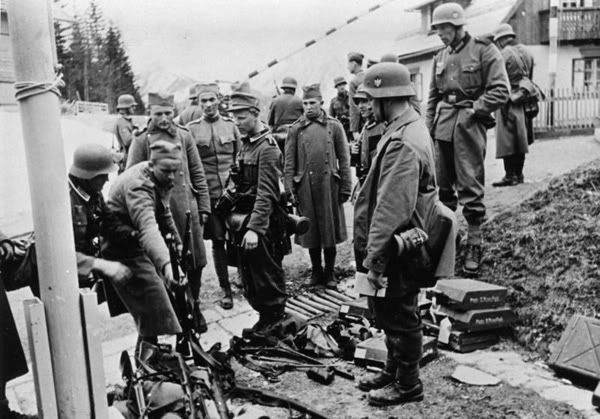
May

June
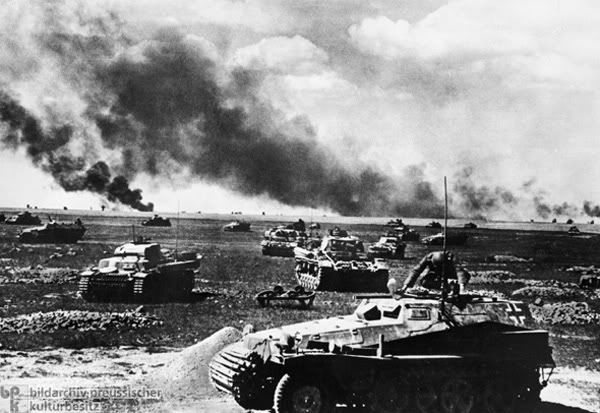
July
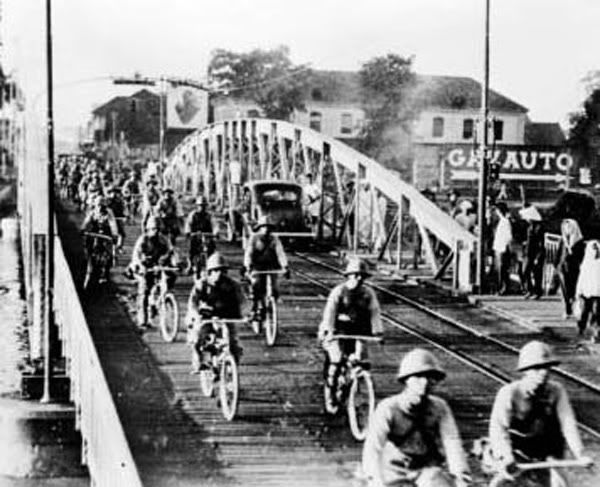
August
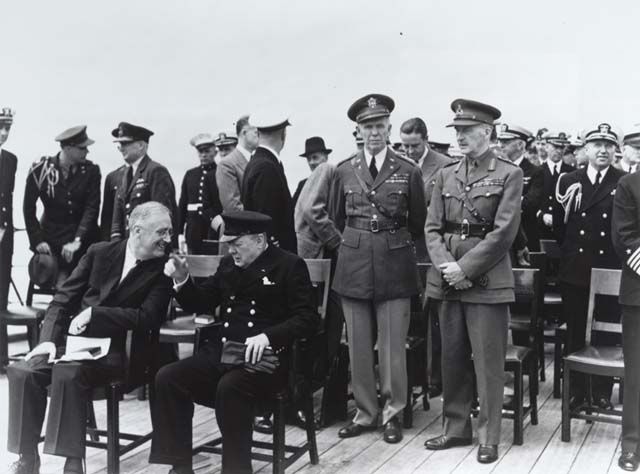
September
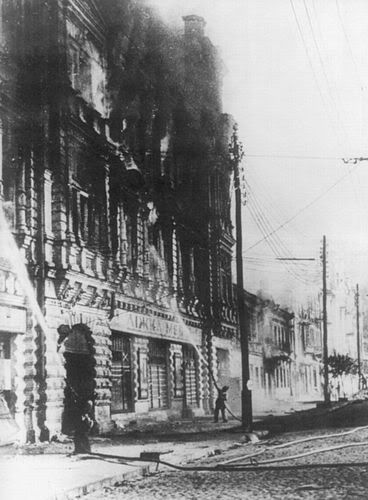
October
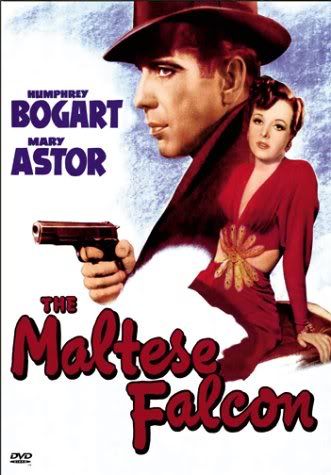
November
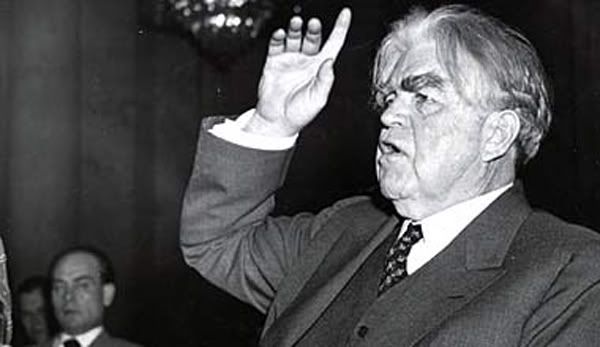
December
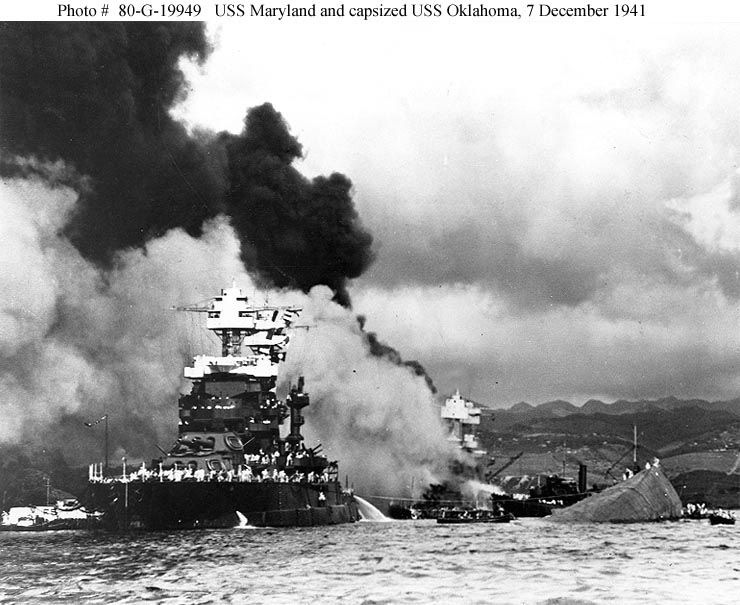
Happy New Year ping.
Happy New Year ping.
Happy New Year!
ping for later reading, lot,s of Reading.
Happy new year
Same to you....and many thanks !!
The origins of this quote if from Major-General Sir John Kennedy. At the time of his recollection he was Director of Military Operations & Plans in the War Office.
He mentions it in his own accounting of the war titled "The Business of War: The War Narrative of Major-General Sir John Kennedy"
Here's the account from the afternoon of 11 October according to Sir Kennedy:
It was now 3.45 p.m., and the Prime Minister was looking sleepy. He said he always went to bed in the afternoon, when he could, and took all his clothes off, and slept for an hour. this enabled him to continue work until 2 a.m. or 3 a.m. He considered an afternoon sleep very important unless, of course, one was young, and there were many advantages in adoption the recumbent position while working. with a mournful expression, he bade us good-bye, remrking, as he did so, 'Yes, I am afraid Moscow is a gone coon.' Then he stumped along the passage to his bedroom.
Slang from the 19th Century.
Like “dead duck,” or a “gone goose.”
Means that someone is in a hopeless situation.
Regards,
According to Dictionary.com, the phrase is early 1800s slang and Stephen Crane used it in “Red Badge of Courage” in 1894. I honestly don’t know where Churchill came across the phrase.
Happy New Year to all.
Happy New Year; finally got to my computer today.
Disclaimer: Opinions posted on Free Republic are those of the individual posters and do not necessarily represent the opinion of Free Republic or its management. All materials posted herein are protected by copyright law and the exemption for fair use of copyrighted works.